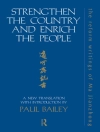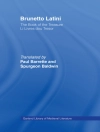New essays on the evolution of cultural memory of the former German Democratic Republic since 1989-90 and its importance for Germany’s continuing unification process.
Twenty years on from the dramatic events that led to the opening of the Berlin Wall and the collapse of the GDR, the subjective dimension of German unification is still far from complete. The nature of the East German state remains a matter of cultural as well as political debate. This volume of new research focuses on competing memories of the GDR and the ways they have evolved in the mass media, literature, and film since 1989-90. Taking as its point ofdeparture the impact of iconic visual images of the fall of the Wall on our understanding of the historical GDR, the volume first considers the decade of cultural conflict that followed unification and then the emergence of a morecomplex and diverse ’textual memory’ of the GDR since the Berlin Republic was established in 1999. It highlights competing generational perspectives on the GDR era and the unexpected ’afterlife’ of the GDR in recent publications.The volume as a whole shows the vitality of eastern German culture two decades after the demise of the GDR and the centrality of these memory debates to the success of Germany’s unification process.
Contributors: Daniel Argelès, Stephen Brockmann, Arne De Winde, Wolfgang Emmerich, Andrea Geier, Hilde Hoffmann, Astrid Köhler, Karen Leeder, Andrew Plowman, Gillian Pye, Benjamin Robinson, Catherine Smale, Rosemary Stott, Dennis Tate, Frederik Van Dam, Nadezda Zemaníková.
Renate Rechtien is Lecturer in German Studies, and Dennis Tate is Emeritus Professor of German Studies, both at the University of Bath, UK.
Innehållsförteckning
Introduction: The Importance and Diversity of Cultural Memory in the GDR Context – George Dennis Tate
Visual Re-Productions of the Wende: The Role Played by Television Images in Constituting and Historicizing Political Events – Hilde Hoffmann
Remembering GDR Culture in Postunification Germany and Beyond – Stephen Brockmann
’Das waren wir nicht!’: The Image of East Germans and the GDR as a Narrative Problem after 1989 in Klaus Schlesinger’s Die Sache mit Randow – Daniel Argeles
’Der Schrei des Marsyas’: The Mythic Voices of the Subaltern in Reinhard Jirgl’s Mutter Vater Roman – Arne de Winde
’Der Schrei des Marsyas’: The Mythic Voices of the Subaltern in Reinhard Jirgl’s Mutter Vater Roman – Frederik Van Dam
An Early Challenge to the Construction of Cross-Border Romance in Post-1989 Film: Andreas Dresen’s So schnelles geht nach Istanbul – Rosemary Stott
Mediating Immediacy: Historicizing the GDR by Bringing It Back to Life in Postmillennial Works of Fiction – Andrea Geier
’Eine Armee wie jede andere auch’? Writers and Filmmakers Remember the Nationale Volksarmee – Andrew Plowman
Matter Out of Place: Trash and Transition in Clemens Meyer’s Als wir träumten – Gillian Pye
Autobiographical Writing in Three Generations of a GDR Family: Christa Wolf – Annette Simon – Jana Simon – Wolfgang Emmerich
Accursed Progenitors? Extending the Generation-Gap Debate to GDR Parents – Astrid Koehler
Parallels and Divergences in Post-1989 Memory Discourse: A Comparative Review of the Slovak Experience – Nadezda Zemanikova
Dances of Death: A Last Literature from the GDR – Karen Leeder
’Die Gegenwart war es nicht’: Irina Liebmann and the Post-Wende Uncanny – Catherine Smale
One Iota of Difference: Remembering GDR Literature as Socialist Literature – Benjamin Robinson
Notes on the Contributors
Index
Om författaren
STEPHEN BROCKMANN is Professor of German with courtesy appointments in English and History at Carnegie Mellon University.












